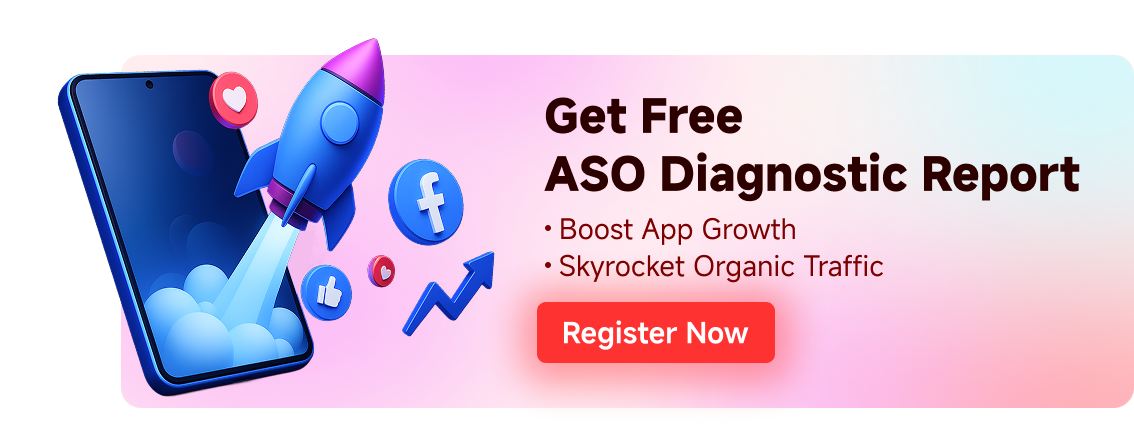Free consultation with ASO specialists
Doing ASO for the first time or have no idea how to carry out targeted optimization of your app?
We offer one-on-one customized services provided by app marketing specialists
Reasons for the decline in App keyword ranking and ASO strategy analysis
2025-06-19
In the fiercely competitive app store, keyword rankings directly determine whether users can discover your app. A significant drop in ranking may lead to a sharp decline in downloads and an instant halt to growth engines. This article will delve into the core reasons for the decline in app keyword rankings and provide proven ASO strategies to help you regain growth momentum.
Why did your app keyword ranking suddenly drop? Analysis of 5 core reasons
-
Algorithm update: The invisible rule changer
App stores (especially Apple's App Store and Google Play) regularly update their search ranking algorithms to improve the user experience.
Impact: Algorithm updates may change the weight assigned to different factors. For example, Google It may emphasize more on user engagement (such as retention rate), and Apple It may pay more attention to user behavior after installation (such as ratings, crash rate). The keyword ranking of the App that fails to adapt to the new rules will drop significantly.
Response: Keep an eye on the official developer blog ( Apple App Store Update , Google Play Policy Update ) and industry authoritative reports, adjust strategies in time.
-
Competitors are making a move: seize your high ground
Competitors are constantly optimizing their ASO strategies: updating more attractive metadata (title, subtitle, keyword field, description), obtaining high-quality ratings and reviews, increasing downloads, and improving user engagement.
Impact: Under the same keyword, your competitors' overall performance is better than yours, which causes your ranking to be pushed out of the top.
Response: Regularly conduct competitor ASO analysis (tools like UPUP can be used), identify their strengths and develop countermeasures. Pay attention to their keyword coverage, metadata changes, user feedback and promotional activities.
-
Insufficient metadata optimization: If the foundation is not solid, the earth will shake
-
Keywords are outdated/invalid: The search volume of target keywords decreases or the user's search habits change, but you fail to update the keyword library in time.
-
Title/Subtitle/iOS Keywords Field Not Fully Utilized: Failed to effectively include high-value, highly relevant core keywords.
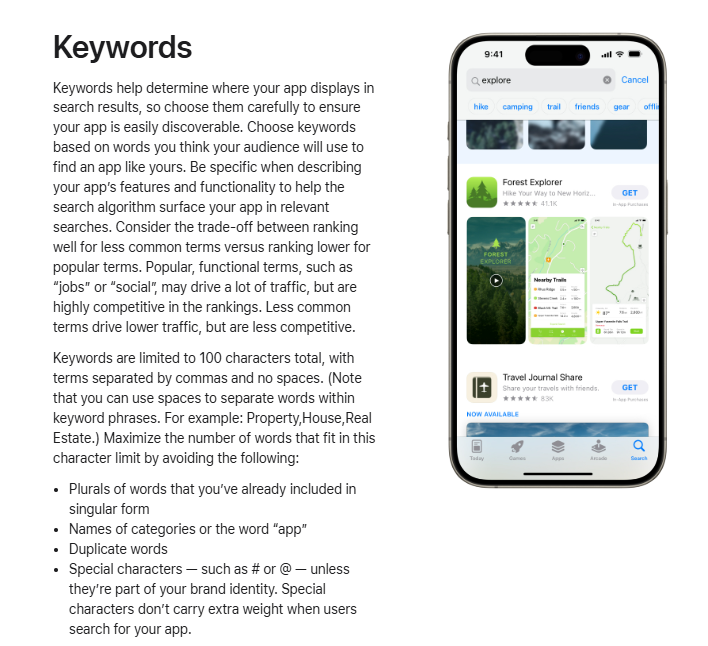
-
Describe the lack of appeal/keywords: The description not only affects conversion, but may also indirectly affect search relevance (Google Play).
-
Localization missing: High-quality localized metadata is not provided in key markets.
-
Impact: It directly weakens the relevance and visibility of the app under the target keywords, resulting in a decline in keyword rankings.
-
Response: Regularly conduct keyword research and use professional tools (such as UPUP) to find new opportunities; ensure that core keywords are naturally integrated into titles and subtitles; make full use of the 100-character keyword field in iOS; optimize descriptions and consider their search function; provide accurate localization for all important markets.
-
User feedback and interaction metrics deteriorate: the store's "vote of confidence"
-
Ratings drop / more negative reviews: Low ratings (especially recent ones) and negative reviews can severely damage a store's trust in an app, sending negative signals to the algorithm.
-
Low Retention Rate/High Uninstall Rate: Users uninstalling or churning shortly after installation indicates that the app did not meet expectations, which is an important negative ranking factor.
-
Low activity/interaction: Low frequency of user opening, short usage time and less function use indicate low user engagement.
-
Impact: These metrics are the core basis for algorithmic evaluation of app quality and user experience. Deterioration in performance will directly drag down the ranking of search keywords.
-
Response: Actively manage user ratings and reviews, promptly respond to negative reviews and solve problems; understand the reasons for user churn through in-app surveys or analysis tools, and continuously optimize product experience; encourage user feedback and improve satisfaction. Improving these metrics is the long-term foundation for improving keyword rankings.
-
Natural/Promotion Traffic Decrease: Download Momentum Decay
-
Natural traffic decline: It may be caused by the decline in ratings itself, forming a vicious circle.
-
Paid promotion activities (such as ASA, UAC) are reduced or become worse: Paid traffic is one of the effective levers to drive downloads and improve keyword rankings in the short term.
-
External marketing activities weakened: The traffic brought by channels such as website promotion, social media publicity and KOL cooperation has decreased.
-
Impact: The number of downloads (especially organic downloads) is one of the core factors affecting keyword rankings. A decrease in traffic means a decrease in downloads, which in turn leads to a further decline in rankings.
-
Response: Analyze the traffic sources and find out the reasons for the decline; optimize or restart effective paid user acquisition channels; strengthen external marketing promotion to drive traffic to the product page. Combine with our provided Keyword Ranking Optimization Service, maximize the natural flow.
The following figure is completed by a customer AppFast Ratings and Reviews Keyword Ranking Optimization After service effect
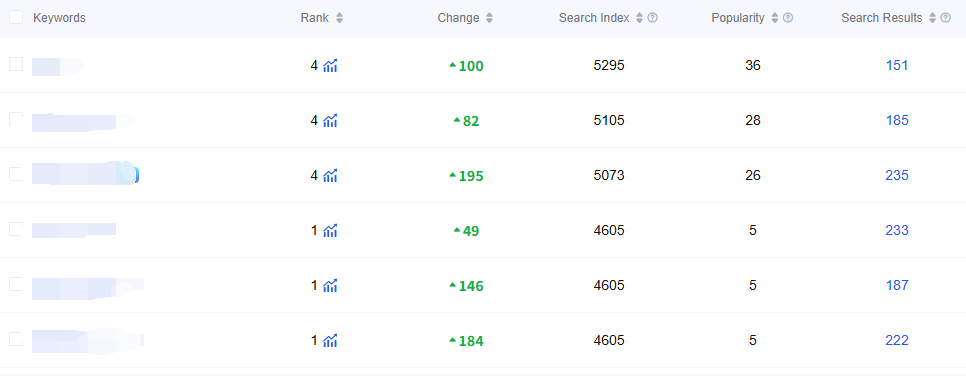
Effective ASO strategy to improve keyword ranking
-
Keyword Research and Optimization: Accurately Positioning User Search Intentions
-
In-depth research: Use professional ASO tools to mine high search volume, medium-low competition, and highly relevant keywords for the app. Pay attention to the value of long-tail keywords.
-
Strategic layout:
-
Core Keywords: Prioritize the title (App Store) or short description (Google Play).
-
Important related words: Make the most of your subtitle (App Store), keyword field (App Store), and full description (Google Play).
-
Localization Keywords: Research local user search habits for different markets, and accurately translate and optimize.
-
-
Continuous iteration: Regularly monitor keyword performance (ranking, traffic, conversion), replace poor-performing keywords, and test new keywords. This is the core work to improve keyword ranking.
-
-
Metadata Optimization: Enhancing Attractiveness and Relevance
-
Title (App Store): Include the most important 1-2 core keywords within 30 characters, and maintain readability and brand identity.
-
Subtitle (App Store): Use 30 characters to supplement important features or keywords, and enhance the description.
-
Keyword Field (App Store): Carefully fill in 100 characters, avoid repetition, singular and plural, waste of space. Comma separated, sorted by importance.
-
Short description (Google Play): The first 30-40 characters are crucial and must contain the main keyword and be very attractive.
-
Full description (Google Play): Clearly introduce the functions and advantages, and naturally integrate keywords. You can divide into paragraphs and use symbols to improve readability.
-
Localization: Avoid machine translation, seek professional or native speaker proofreading, ensure natural and authentic.
-
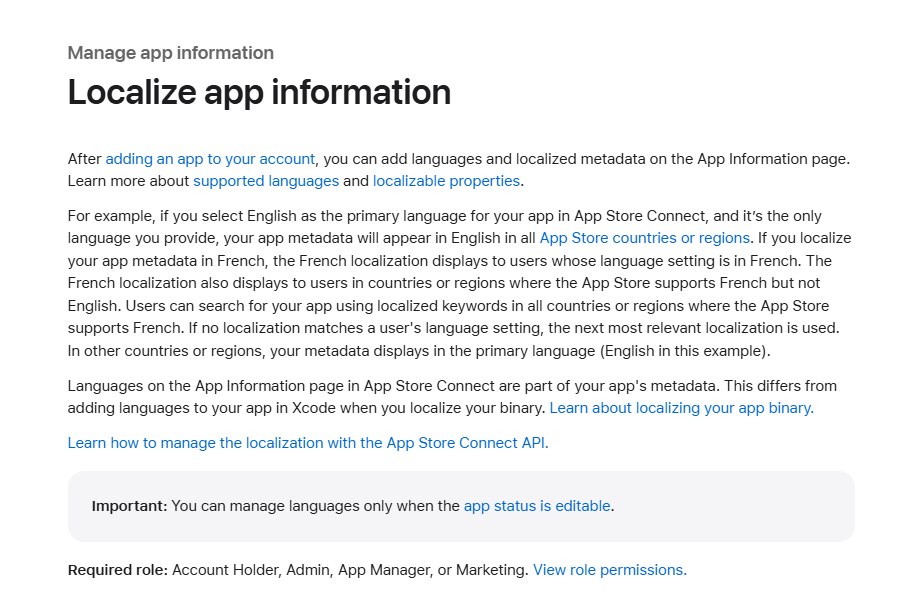
-
Significantly improve user feedback and interaction: win algorithm trust
-
Active Ratings and Reviews Management:
-
Guide satisfied users to rate and review: Ask for ratings and reviews politely through in-app pop-ups at the right time (such as when a key task is completed or when the experience is good) (following platform rules).
-
Timely professional reply to negative reviews: Expressing apologies, understanding, explaining solutions or improvement directions, and demonstrating an attitude of importance.
-
-
Optimize product experience: This is the foundation. Analyze user feedback (reviews, ratings, in-app feedback, social media) and user behavior data, continuously fix bugs, improve UI/UX, add features that users love, and increase user retention and engagement.
-
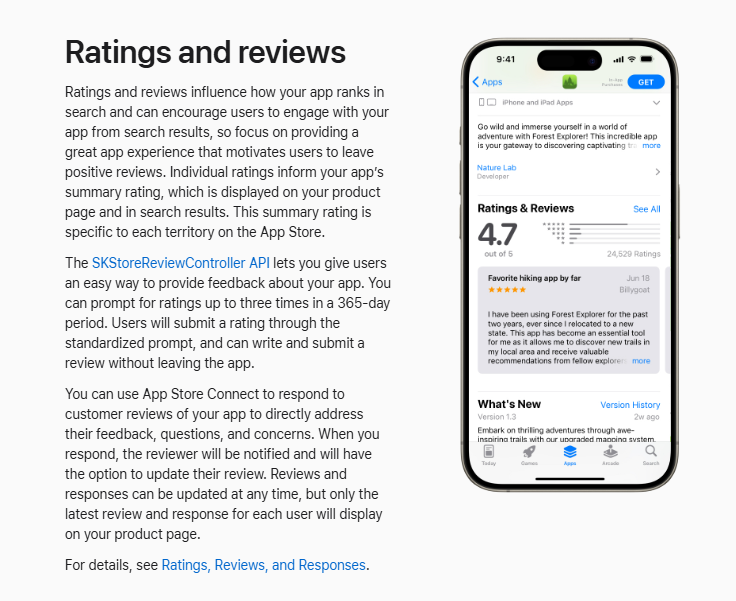
-
Stimulate downloads and improve engagement: a positive feedback loop engine
-
Use paid ads: Run Apple Search Ads (ASA) and Google Ads (UAC) to target core keywords, directly Get Related Keywords Search Exposure Ratings and Reviews
-
External traffic guidance: Drive users to download from the app store through website, social media, email marketing, KOL cooperation, PR events, etc. Ensure that the landing page links are correct.
-
Increase product value and retention: Increase the frequency of opening and usage time through new features, content updates, activities, personalized experiences, etc., to prove the value of the app to the algorithm. High retention users are the invisible drivers of improving keyword rankings.
-
-
Monitoring, Analysis and Continuous Iteration: ASO Never Ends
-
Key Metrics Tracking: Continuously monitor the ranking of target keywords, natural downloads brought by keywords, total downloads, conversion rate, ratings, reviews content, user retention rate, etc.
-
Use professional tools: Rely on ASO tools (such as UPUP) and store backend data (App Store Connect, Google Play Console) for in-depth analysis.
-
A/B Testing: Especially for Google Play, A/B test the icon, screenshots, description and other materials to find the best solution to improve conversion rate. App Store can also Product Page Optimization Test different metadata combinations.
-
Flexible adjustment: Continuously adjust and optimize your ASO strategy based on data and market changes (such as the emergence of new competitors, hot trends).
-
Conclusion: Turning crisis into opportunity
A drop in app keyword rankings is not the end of the world, but an important early warning signal and optimization opportunity. By systematically diagnosing the cause - whether it's due to algorithm updates, being overtaken by competitors, insufficient metadata, poor user feedback or declining traffic - and precisely implementing corresponding ASO optimization strategies, you can not only recover lost ground, but also build a more solid foundation for app keyword visibility, achieving sustainable growth.
Keyword ranking is declining, and users are losing? Urgent!
🔥 Start now「 Keyword Ranking Optimization Service 」🔥
Experts deeply analyze the root causes of the decline, accurately customize improvement strategies, and strongly boost the ranking of your core app keywords to regain traffic and users!
Click below to consult and revive your download growth!
Related recommendations
